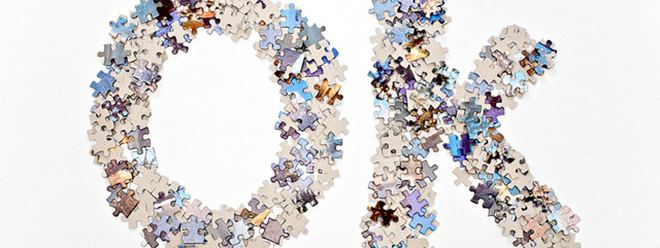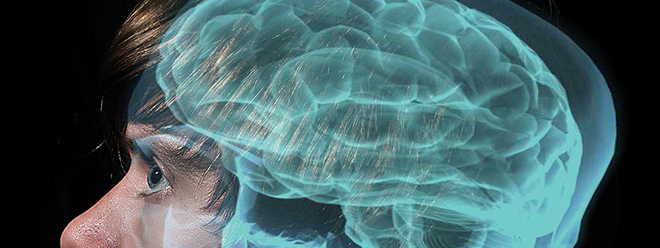
by Tara Joyce | Apr 23, 2015 | Cultural Creativity

Perhaps you’ve had an experience similar to mine. I grew up believing I could DO anything. I was nurtured by the concept that everything I desired could be mine, if only I was willing to work for it.
What I did not understand, amid my action full of DOing, was this was not the whole story. Sure, I could try and do everything, and I might even impress myself in doing so, but without the other piece of the puzzle, this doing of mine lacked a real purpose.
I had learned to be full of self-esteem but I lacked self-love. I knew I could DO, but I couldn’t see nor appreciate the BEing behind it. I was the product of a cultural environment that emphasizes what you DO (the external) more than who you ARE (the internal).
We’ve been taught to believe that through DOing we are entitled to everything we desire. And while this sounds good and is partially true, it is an unbalanced approach that prevents us from recognizing that our value is far greater than the esteem-based DOing we’ve limited our self with, and tangled our self in. Without including the value of our BEing, we are leaving our self starving to receive recognition from others, for inside we haven’t learned about the true value we posses.
Without knowing the value of our BEing, we can’t help but be caught up in the esteem-based DOing — a DOing done not because we need to, but because we think we should. We can’t see another way to have the life we desire. And so we strive for outside power (beauty, money, status) more and more in an attempt to fulfill the thing we need more of. Love.
We wouldn’t need so much esteem if we had more love. Care, compassion, respect, value. We need them as much as we need beauty, money and status. One does not need to be pursued at the expense of the other. Through loving our self, we can create the esteem we desire.
photo credit: Caleb George

by Tara Joyce | Feb 9, 2015 | Cultural Creativity, Self/Business Growth

We’ve created a culture of leaving people feeling as though they’re missing something. We’ve created a collective belief that, as a community and as an individual, we are not whole, nor okay.
We’ve created a commercial system that grows fat and comfortable on promoting these feelings of lack and fragmentation. We’ve bought the idea that we can consume something or someone that can leave us feeling more whole.
In the midst of our chaos of un-wholeness, we’ve created deep poverty. More than lacking material resources, deep poverty lives in our feelings and thoughts of lack — lack of ability, of confidence, and of agency — and our disbelief that we can make a plan and change our lives. This mindset can affect the materially poor and rich alike, and it’s from this place that we’ve created the material poverty of our world, and our cultural messages of lack.
Business and culture, excitingly, just as they helped shape these problems, are also powerful spaces to transform deep poverty. There is enormous potential within these spaces to create shifts away from these cultural and economic messages of lack and fear. In this moment, there is so much space and need for actions of abundance; we are desperately in need of people and businesses who actively invest in their own inherent wholeness, and ours. These positive entities are our tools for cultural and economic transformation, and their messages of abundance and of truth are integral for us to heal.
I invite you to take a moment now and feel that place inside you that believes in your own un-wholeness. Sense the amazing transformational power that pain contains… Trust that in working to heal your own beliefs of un-wholeness, you have the power to transform your whole world.
photo credit: Horia Varlan

by Tara Joyce | Mar 24, 2014 | Cultural Creativity

I like to write about our Values, our Worldviews, and the Subcultures we inhabit — but I don’t think I’ve ever clearly explained why, have I?
Maybe I’ve never written about it clearly before because it hasn’t been clear to me why it really matters until now.
Having knowledge about these topics is a business owner’s secret weapon. For they determine what and why we buy.
They’re psychographics and they explore an individual’s concepts of the world they live in. Demographics don’t have a chance against these bad boys.
Can I Get a Definition?
We use a lot of words every day. And many words — words that I use and you use — mean different things to me than they do to you.
For that reason, I feel like I always liked definitions as I often find myself asking, “yes, but what does that word really mean?”
What are Values?
Values are what’s important in your life (your life priorities). Values are what you actually do, accomplish and be.
You live your values. Each of us commits our actions in pursuit of the important matters in our lives.
Your “individual character” is built around your deeply held values and the meanings and worldviews associated with them.
Values determine how and if you will vote, what products and services you will buy, how you live, and what kind of future you want for yourself and your loved ones.
What are Worldviews?
Worldviews are your set of beliefs about “how things work”, “how life is” and “what’s objectively important in life”. It’s your perspective, your point-of-view on life.
An interesting thing about your worldview is that the more you believe that your worldview defines you, the tighter you grasp onto it’s truth.
Your worldview can be your pain and it can be your peace.
What are Subcultures?
Subcultures are a cultural group (e.g., the Cultural Creatives) within a larger culture (e.g., Canadian culture), often having values and lifestyles alternative from those of the dominate culture.
Dr. Paul Ray (who wrote The Cultural Creatives) observed that there are three major subcultures in the Western World — the Moderns, the Traditionals and the Cultural Creatives.
Everyone within these subcultural groups shares similar values, worldviews and lifestyles and these things define their actions far more than any other subculture they may belong to, including their Ethnic subculture.
Psychographics – what and why we buy
A powerful thing about psychographics is that, as a business owner, the more you work on your own understanding of your values, your worldviews and what subcultures you connect with, the stronger your understanding of your customer’s psychographics will be.
A more empathetic understanding of what and why you buy can help you more authentically understand and connect with the buying motivations of your customers.
And the best part is you may just find that you know your customers far better than you think you do, and that they value, view and live in the world very similarly to you.
photo credit: illuminaut






